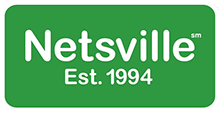Here’s what some marketers are saying about the move to include same meaning queries in exact match close variants.
Marketer reactions to the news that Google is yet again degrading the original intent (much less meaning) of exact match to include “same meaning” close variants is ranging from pessimism to ho-hum to optimism.
Expected impact on performance
“The impact of this will probably be most felt by accounts where exact match has historically been successful and where an exact match of a query made a difference in conversions — hence the reason you’d use exact in the first place,” said digital consultant and President of Netptune Moon Julie Friedman Bacchini.
Friedman Bacchini said the loss of control with exact match defeats the match type’s purpose. Many marketers use exact match to be explicit — exacting — in their targeting and expect a match type called “exact” to be just that.
Brad Geddes, co-founder of ad testing platform AdAlysis and head of consultancy Certified Knowledge, said one problem with expanding the queries that can trigger an exact match keyword is that past changes have shown it can affect the overall performance of exact match. “The last change meant that our ‘variation matches’ had worse conversion rates than our exact match and that we lowered bids on most exact match terms. This change might just drive us from using it completely, or really hitting the negative keywords.”
Like Geddes, Andy Taylor, associate director of research at performance agency Merkle,also said they saw an increase in traffic assigned as exact match close variants with the last change, “and those close variants generally convert at a lower rate than true exact matches.”
Yet, others who participated in the test see loosening of the reigns as a positive action.
One of the beta testers for this change was ExtraSpace Storage, a self-storage company in the U.S. with locations in more than 40 states. The company says it saw positive results from the test.
“The search queries were relevant to our industry and almost all of our primary KPIs saw an overall improvement,” said Steph Christensen, senior analyst for paid search at ExtraSpace.
Christensen said that during the test they did not do any keyword management, letting it run in a “normal environment to give it the best chance to provide the truest results.” She says they will continue to watch performance and make adjustments as needed after it’s fully rolled out by the end of October.
Advertisers as machine learning beneficiaries or guinea pigs
A big driver of these changes, of course, is machine learning. The machine learning/artificial intelligence race is on among Google and the other big tech companies.
Google says its machine learning is now good enough to determine when a query has the same intent as a keyword with a high enough rate of success that advertisers will see an overall performance lift.
Read More at Search Engine Land




